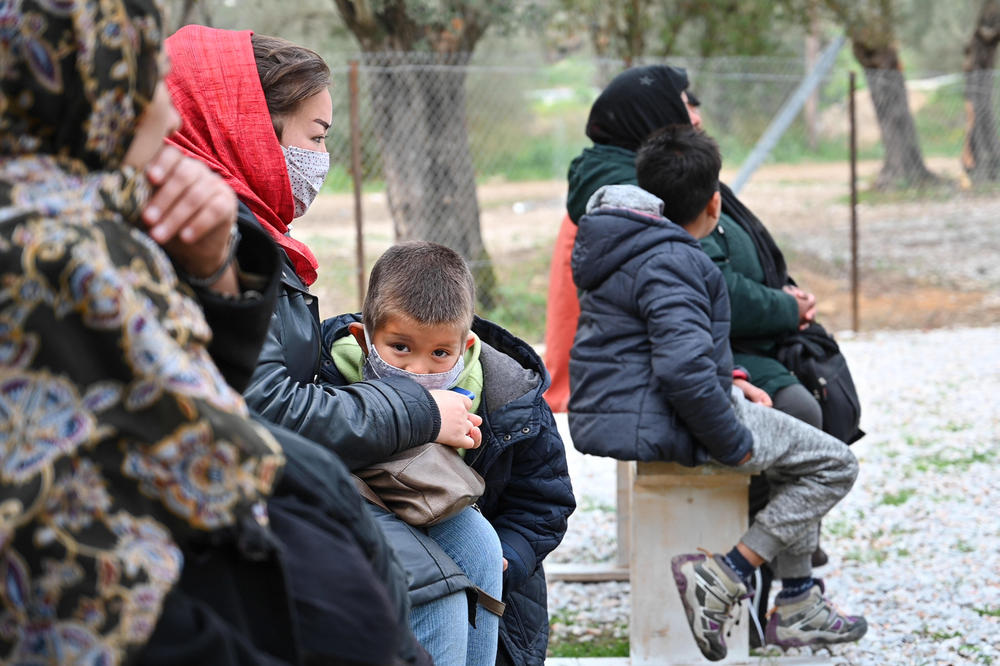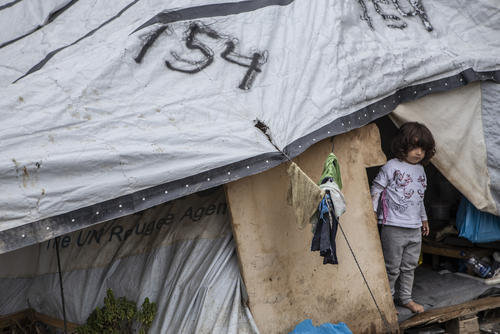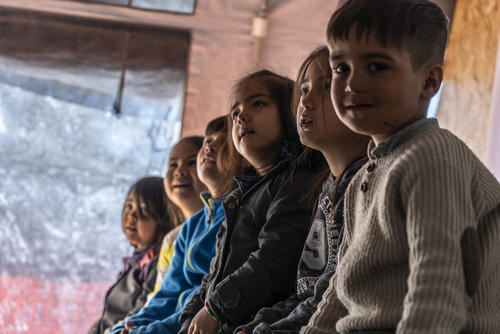COVID-19: Greek police enforce dangerous quarantine of overcrowded Moria camp
On the Greek island of Lesbos, authorities have enforced a dangerous lockdown on 13,000 vulnerable migrants and asylum seekers held in squalid conditions at Moria. This comes days after the first case of COVID-19 was confirmed at the infamous camp.
This mass quarantine by the Greek government is ill-considered, potentially very harmful and must be avoided at all cost.
Above all, such restrictive measures can never cover up the lack of a comprehensive strategy to reduce the transmission of COVID-19 in the camp and protect what is left of peoples’ dignity.
Hellish conditions
The numbers of confirmed COVID-19 cases among residents of the island has been rising lately, but to this day there is only one confirmed case of COVID-19 among the migrants and asylum seekers held in Moria camp.
"We cannot see the justification of the enforced mass quarantine. And what’s worse, we know these measures will worsen our patients’ already deteriorating mental health"
The government’s duty of care requires them to boost the public health response for the asylum seekers of Moria, not to imprison them in their hellish conditions as a way of pretending to protect the island from the spread of the virus.
Evacuation ignored
Moria is not safe for anyone, but there are over 200 identified and named individuals whose age and underlying health conditions put them at serious risk from COVID-19.
For months, Médecins Sans Frontières / Doctors Without Borders (MSF) and other organisations have been calling for the total evacuation of all the residents of Moria camp, with a specific urgency to move these particularly medically vulnerable people to safe accommodation on Lesbos, the mainland or other EU states.
In April, the Government promised such an evacuation from the islands, but five months later these people are still trapped and are now contained by a police cordon.
With a positive case of COVID-19 confirmed in Moria, it is essential that people are moved from the camp to safe accommodation now. To not do so would be a clear dereliction of the Greek authorities’ duty of care.
No justification
“Apparently the local health authorities have started testing the residents of the camp for COVID-19, but that is a fraction of what needs to be done,” says Caroline Willemen, MSF coordinator for COVID-19 on Lesbos.
“A proper public health response is what is needed; well-planned, with contact-tracing as well as testing, a serious boost to hygiene conditions and healthcare services that are easily accessible.”
“We cannot see the justification of the enforced mass quarantine,” says Willemen.
“And what’s worse, we know these measures will worsen our patients’ already deteriorating mental health.”
“The government should be protecting these people, but instead by keeping them hemmed in with COVID-19 in the camp, they are exposing them.”
“Right now in Moria, there are elderly people with underlying health conditions, pregnant women, as well as children who are afraid and are being exposed to more trauma as a result of this policy,” continues Willemen.
“The government should be protecting these people, but instead by keeping them hemmed in with COVID-19 in the camp, they are exposing them.”
The need for a real response
Anyone engaged in public health knows that a comprehensive approach is needed rather than quarantine, particularly when COVID-19 is evidently already circulating outside of the camp.
As MSF, we know what makes a public health response during outbreaks successful:
- Not resorting to damaging measures such as policing and detention
- Ensuring proper information and collaboration with the community
- Ensuring basic hygiene measures are as accessible as possible for all
- Evacuation and shielding of people who are at heightened medical risk
- Mass testing
- Isolation and treatment of the positive cases
- Contact tracing
- Quarantine only in places where minimum standards are met and medical follow-up can be ensured
The authorities’ reaction so far has been one public health measure (reportedly starting testing in the camp) and one unnecessary enforcement of a mass quarantine lockdown.
If the Greek government is going to be accountable for its duty of care, it needs to urgently implement the other public health measures – or entirely evacuate all in Moria to safer places – rather than rely on a mass quarantine that will inevitably cause additional suffering while bringing absolutely no public health benefits to anyone.


